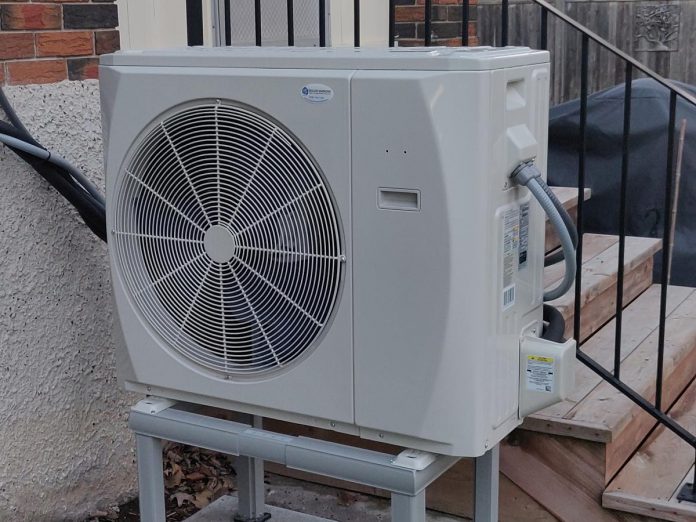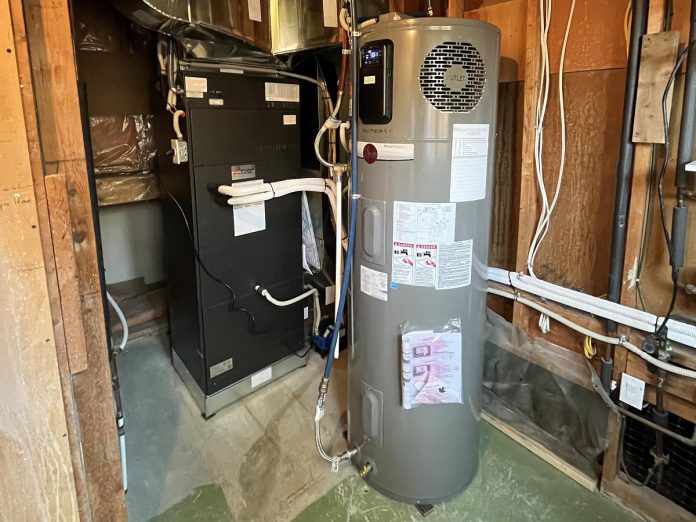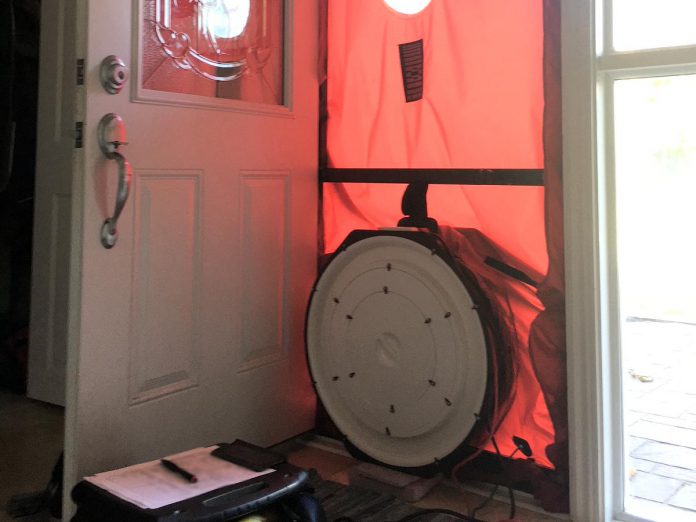
Are you looking for cool ways to participate in addressing the climate crisis? Reducing your use of fossil fuels isn’t just about riding a bike. Homeowners have unique opportunities to conserve energy at home and improve comfort during extreme weather events.
Locally, reducing CO2 emissions will happen by choosing energy sources that aren’t coming from fossil fuels. In this region, natural gas is one energy source used for heating that is a major contributor to emissions. In the City and County of Peterborough, over 30 per cent of total CO2 emissions come from our buildings.
Sealing and insulating the buildings we live and work in is an important step in reducing our use of fossil fuels. A home that is draft-proof and insulated well is far more comfortable, so conserving energy at home literally feels good for us!
In Peterborough homes, 60 to 75 per cent of energy use is related to heating and cooling our spaces — we use a lot of energy to keep ourselves comfortable by running our furnaces and air conditioners. In the foreseeable future, many homes will switch their primary heat source to a heat pump that uses electricity to regulate temperatures, instead of natural gas.
GreenUP’s home energy advisor Clara Blakelock connects with local homeowners and residents to support them in the process of decarbonizing their homes, starting with the steps they can take to do so.
Clara tells us she “is proud to work in the field where I can talk directly with people about natural gas, build awareness that everyone needs to reduce our use of fossil fuel, and talk about how that will happen in our homes.”

A home energy assessment, provided by registered home energy advisors like Clara, is the best first step in improving the energy efficiency and comfort of your home. An assessment will evaluate your home’s current energy performance and provide you with a clear plan on how to take action toward energy efficiency.
At GreenUP, we know it is far more cost-effective, healthier, and more inclusive to learn about and work together to address challenges like energy efficiency, sooner rather than later. That’s why we are proud to see leaders making investments in programs that support homeowners in being more energy efficient.
Currently, there are federal funding programs available for homeowners such as the Greener Homes Grant and the Greener Homes Loan.
Additional programs to support homeowners exist for Enbridge customers heating with natural gas.
Municipalities like the City of Peterborough are currently developing programs that will help to support deep home energy retrofits.
All these programs start with a home energy assessment to determine what retrofits are suitable for a particular home. Depending on what recommended work you complete on your home, you may be eligible for rebates to help cover costs associated with energy assessments and the retrofits you complete. A home energy assessment is the first step in being eligible for rebates.
During an assessment, an energy advisor will visit a home, measure all windows and doors, assess the insulation in attics or basements, document heating and cooling systems, and perform a blower door test. This process typically takes three hours and provides a fascinating picture of how your home uses energy — and what you can do to improve home comfort and efficiency.
After an assessment is complete, a certified home energy advisor writes a report that summarizes the energy performance of your home, identifies retrofits that may improve energy efficiency, and recommends funding programs to support retrofits. GreenUP currently has home energy advisors who perform home energy assessments in Peterborough area postal codes K9H, K9J, K9K, K9L, and K0L.

Improving home energy performance has many benefits. Firstly, it makes you more comfortable and helps protect you from weather anomalies. Secondly, it conserves energy and helps protect the planet. Thirdly, it saves on monthly energy costs.
For all these reasons, making your home more energy efficient is a win for you and a win for our climate.
GreenUP believes deeply that addressing climate change is a responsibility shared by everyone. This means that political leaders, businesses, and individuals all have a role to play. We know that systems-level change, led by our governments, is required to meet pressing climate targets.
We also take joy in sharing strategies empowering individuals to make the changes they can to address climate change. We hope that you, like us, enjoy the small wins and find ways to conserve energy at home.
To begin, call GreenUP’s home energy help desk at 705-536-9943 to find out more about what a home energy assessment entails, costs, and to inquire about your eligibility to take part in related rebate programs.
If you’re a homeowner who resides within one of our current postal code areas, you can book your home energy assessment online at shop.greenup.on.ca/collections/home-energy-assessments. You can also find out more information about climate action at home, including easy DIY retrofits, at greenup.on.ca/climate-action-at-home/.


























